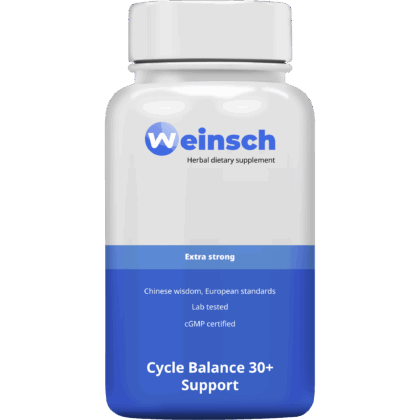Zhi Ke (Bittere Sinaasappel Rijpe Schil) is een warm, Qi-regulerend kruid in de Traditionele Chinese Geneeskunde (TCM) dat bekend staat om zijn vermogen om Qi te verplaatsen, zwelling te verminderen en borst- en buikpijn te verlichten. Zhi Ke is afgeleid van de rijpe schil van de bittere sinaasappelfruit en is milder dan zijn onrijpe tegenhanger Zhi Shi, waardoor het geschikt is voor zwakkere of meer gevoelige personen. Het helpt bij het herstellen van een soepele Qi-stroom in gevallen van stagnatie, ondersteunt de spijsvertering en helpt bij het oplossen van ophoping van slijm. Door zijn zachte aard wordt het vaak gebruikt in formules voor een trage spijsvertering, een opgeblazen gevoel, benauwdheid op de borst en hoesten met slijm.
Functies en voordelen
Promotes Qi Flow and Relieves DistensionMoves stagnant Qi in the chest, diaphragm, and abdomen, reducing feelings of fullness, bloating, and pressure. Improves circulation of Qi without causing excessive stimulation, making it ideal for individuals with a more delicate constitution.
Supports Digestion and Relieves BloatingAlleviates indigestion, poor appetite, and sluggish digestion caused by Qi stagnation in the middle burner.
Transforms Phlegm and Eases the ChestHelps open the chest, reduce cough, and resolve phlegm accumulation in cases of Qi stagnation affecting the Lungs.
Gentle Regulation for Sensitive or Weakened PatientsOffers the Qi-moving benefits of Zhi Shi in a milder form, suitable for elderly, postpartum, or convalescent patients who cannot tolerate strong Qi movers.
Indications (Who Can Benefit from It?)✔ Individuals with chest tightness, bloating, and abdominal distension caused by Qi stagnation.✔ People with poor appetite, sluggish digestion, or indigestion.✔ Those with cough and phlegm due to Lung Qi obstruction.✔ Weaker or sensitive patients needing gentle Qi regulation.
Tongue & Pulse Diagnosis in TCMTongue: Slightly pale or normal with a thin coating, suggesting Qi stagnation without significant heat.Pulse: Moderate or slightly wiry, reflecting mild Qi constraint.
Related TCM PatternsQi Stagnation in the Middle Burner – Causes bloating, fullness, and indigestion.Lung Qi Stagnation with Phlegm – Leads to cough, chest tightness, and difficulty breathing.Weakened Qi Flow – Seen in those recovering from illness or childbirth, where strong Qi movers are too harsh.
Clinical Applications (For Reference Only)Digestive Sluggishness – Improves appetite and reduces post-meal bloating.Mild Chest Oppression – Opens the chest and relieves fullness.Cough with Phlegm – Helps move Qi and disperse phlegm for easier breathing.Gentle Qi Regulation – Supports recovery in elderly or weakened patients.
Common Herbal Formulas with Zhi KeOften combined with Bai Zhu, Chen Pi, and Fu Ling for digestive Qi stagnation, or with herbs like Ban Xia and Jie Geng for chest congestion with phlegm.
Precautions & ContraindicationsAvoid in cases of Qi deficiency without stagnation.Not suitable for pregnancy unless prescribed by a qualified practitioner.Use with caution in individuals with dry cough or Yin deficiency.
Lifestyle & Dietary Recommendations✔ Eat warm, easily digestible foods to support Qi flow and digestion.✔ Avoid heavy, greasy, or overly cold foods that cause stagnation.✔ Engage in regular gentle exercise to promote circulation and relieve abdominal tightness.✔ Maintain a balanced daily routine to support digestive health.
ConclusionZhi Ke (Bitter Orange Mature Peel) is a mild yet effective Qi-regulating herb in TCM, perfect for easing bloating, chest tightness, and phlegm-related discomfort in sensitive or weakened individuals. Its gentle nature makes it a versatile choice for both digestive and respiratory conditions linked to Qi stagnation.
-
Bloedvitaliteit - Xue Fu Zhu Yu Pian Extra Sterk (Verdrijf Stasis in het Huis van Bloed Decoctie) 120 Tabletten 10:1 500mg
€ 24,50 -
Cyclusbalans 30+ Ondersteuning Extra Sterk 120 tabletten 10:1 500 mg
€ 19,95 -
Spijsverteringsregulatie Ondersteuning Extra Sterk 120 tabletten 10:1 500 mg
€ 19,95 -
Emotionele Harmonie Ondersteuning Extra Sterk 120 tabletten 10:1 500 mg
€ 19,95 -
Slaapondersteuning Extra Sterk 120 tabletten 10:1 500 mg
€ 19,95 -
Maag Harmonie Ondersteuning Extra Sterk 120 tabletten 10:1 500 mg
€ 19,95






